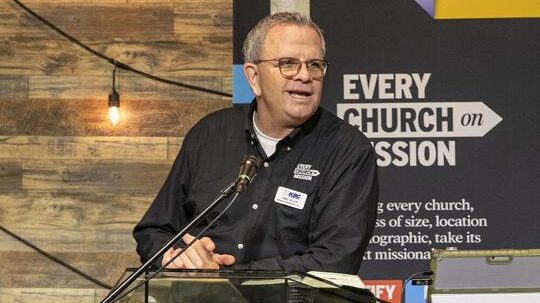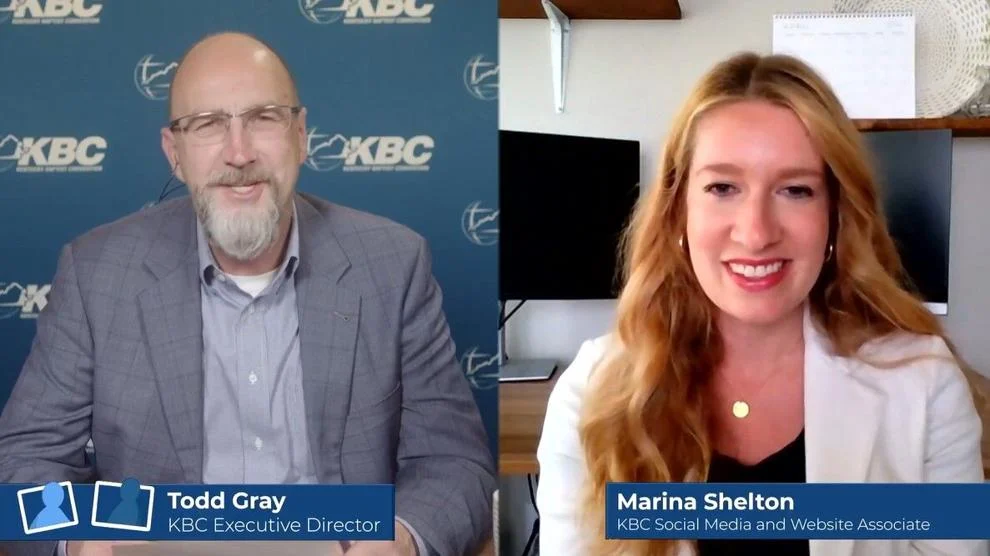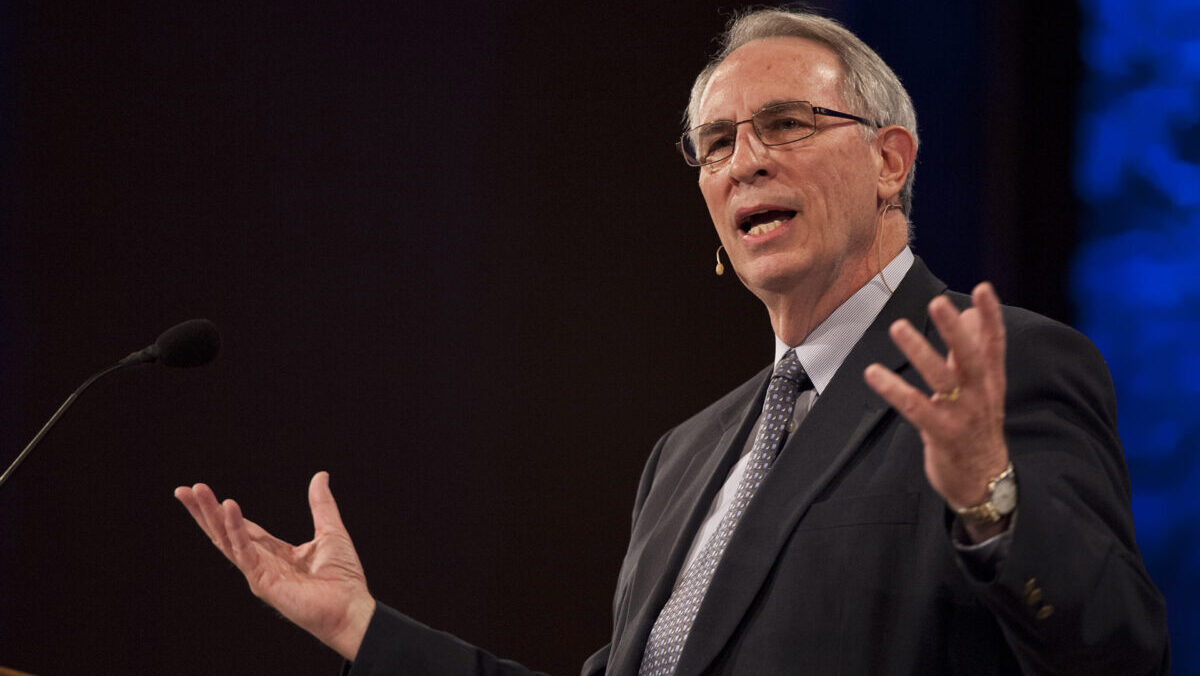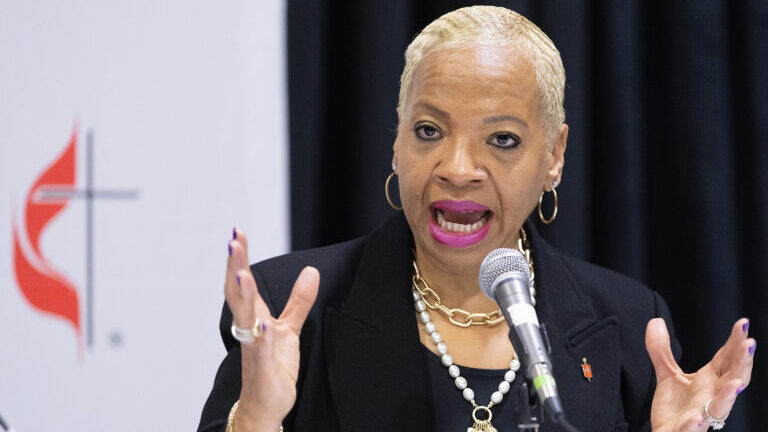Every church — no matter its size or resources — can take a step toward missions involvement.
How that can be accomplished was the focus of the first of six “Every Church on Missions” gatherings sponsored by the Kentucky Baptist Convention.
Eric Allen, KBC missions mobilization team leader, told participants at the Feb. 16 session that “every church can be on mission. Your church is unique, you have skill sets, resources and people who are members who have experiences to draw from.”
He noted why it is important for every church to be on mission:
- 41% of the world’s population is unreached, with little or no access to the gospel.
- 30% of Americans have no religious affiliation — 70% claim an affiliation with Mormon, Jehovah’s Witnesses, Buddhists, Hindus.
- 12% fewer identify as Christian.
- Churches go on mission “because we are commanded to go,” Allen said, citing Matthew 28. “The disciples were told to go — Jesus didn’t tell them to wait. We’re challenging each other to go and share the gospel and be on mission. If my church doesn’t go, am I being disobedient? If your church doesn’t go, are you being disobedient? If my church doesn’t go, who will go?”
‘Delayed obedience is disobedience’
Allen noted that of 2,300 KBC churches nearly 700 reported they had not done any kind of missions activity.
“God expects us to go. There is no Plan B,” Allen declared. “Delayed obedience is disobedience.
“Also, if we don’t go, we are saying we don’t care about those who don’t know Christ. Our actions say that. We need to be more willing to go and be quicker to respond.
“God has not called all of us to be in full-time ministry work,” Allen acknowledged, “but He does call all of us to go on mission. He doesn’t give us permission to ignore the Great Commission.”
Citing Acts 13, focal passage for the ECOM conference, Allen said, “The first thing to do is pray and seek the Lord. The church at Antioch, led by the Holy Spirit, sent Barnabas and Saul out. They were supported, prayed for and blessed by that church.
“I believe it is the church’s responsibility to seek the Lord and have a concerted effort to identify needs and send them out, leading the charge to send them out. Here (Acts 13) was a concerted, organized effort to send people out on mission. Barnabas and Saul were two primary leaders in the congregation.
“The Holy Spirit said, ‘I want you to send [people] out,” Allen added. “Today we would say, ‘We have to keep them here’ (because of their roles in the church). In Acts 13, they were willing to send their best. Didn’t the Lord send His best?”
Thinking strategically
KBC missions strategist Doug Williams told the group each church should think carefully and strategically about living out the Great Commission. He noted that Forest Baptist Church, where Nathaniel Bishop Jr. is pastor, is finding ways to identify missions opportunities in the Newburg, the most diverse neighborhood in Louisville.
“You never know how God might use experiences of people in your church and the gifting of people in your church,” Williams said. “Have your eyes open to those opportunities.”
Kentucky Baptist Disaster Relief director Ron Crow spoke about churches equipping members for missions.
“If you fail to equip, you are equipped to fail,” Crow said. “There needs to be planning.
“Not only are we to be involved in ministry, but to be equipping others for ministry. The key is always bringing others alongside us and equipping them to do ministry and missions. Jesus didn’t look at who they (the disciples) were, but who they could become. He took some of the most unlikely people and did amazing things through them.
“The most important resources you have in your church are the people,” Crow declared.
Allen added it is “not enough to equip if we don’t send them out on missions. We serve a sending God. God sent His best, His only Son, to us. He sent Abraham, Moses, Paul, the Holy Spirit to us, the Apostles. That is His nature. Jesus passed along His identity as the Sent One to us.”
Next steps
There are a number of ways churches can take a step on mission, including being involved in a local ministry.
“They abound all around us,” Allen asserted. “It may be a short-term mission trip — maybe to eastern Kentucky or a vision trip to Salt Lake City. There are church planting efforts locally or elsewhere in the state. There is Disaster Relief work … there’s vocational ministry, serving as a pastor or missionary. All these are examples of sending out.”
Allen suggested churches do more than sponsor a missions trips.
“Partner with a missionary. Instead of sending 20 at one time, send four teams of five,” he encouraged. “Partnerships are really great in developing relationships between the church and a missionary.”
Caring for partners
Teresa Parrett, KBC missions mobilization coordinator, encouraged the group to care for people involved in missions.
“Being on mission is not an easy task,” she said. “There is a lot of stress; there are travel issues; it may be a whole different culture and a different language.
“If we don’t care for those we send, the team may become discouraged and burned out. Everyone in the congregation won’t go, but everyone can be part of caring for those who do go.
“First, pray for those who go,” Parrett said. “Send encouragement cards or email or texts. Send a small gift, remember them on their birthday, adopt a missionary or missionary family. Have a Zoom meeting — visit and get to know them; have a retreat for new missionaries.
“The important thing is to stay connected. Learn about their ministry as much as you can. Don’t let them feel they are out there all alone.”
Williams noted not everyone at the church at Antioch went on mission, but all were involved.
“You have a part to play,” he declared.
EDITOR’S NOTE — This story was written by Chip Hutcheson and originally published by Kentucky Today.








